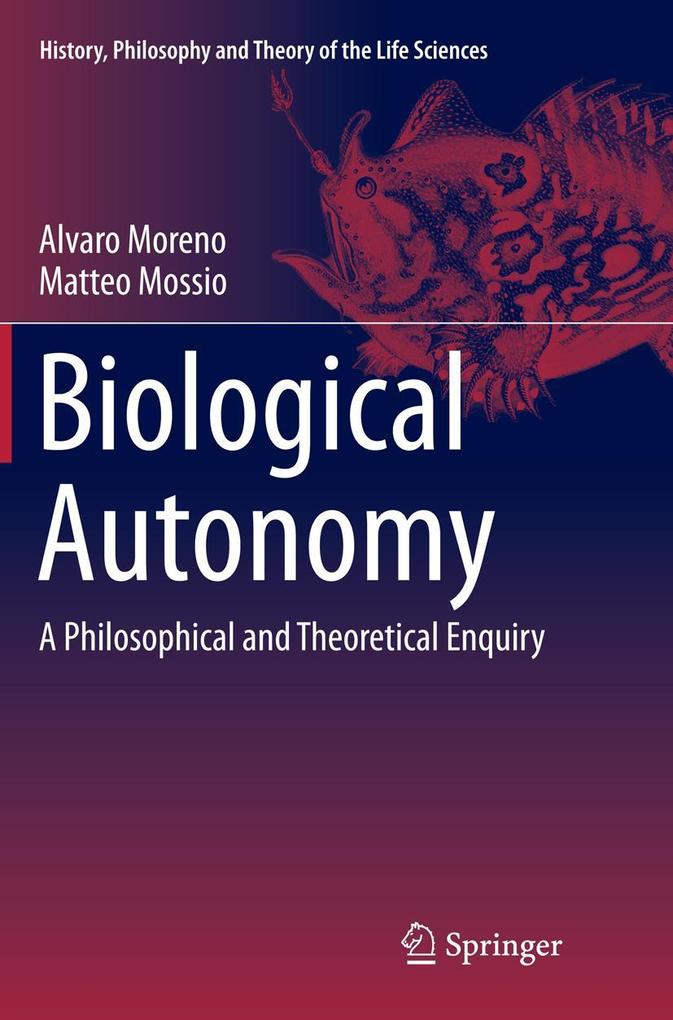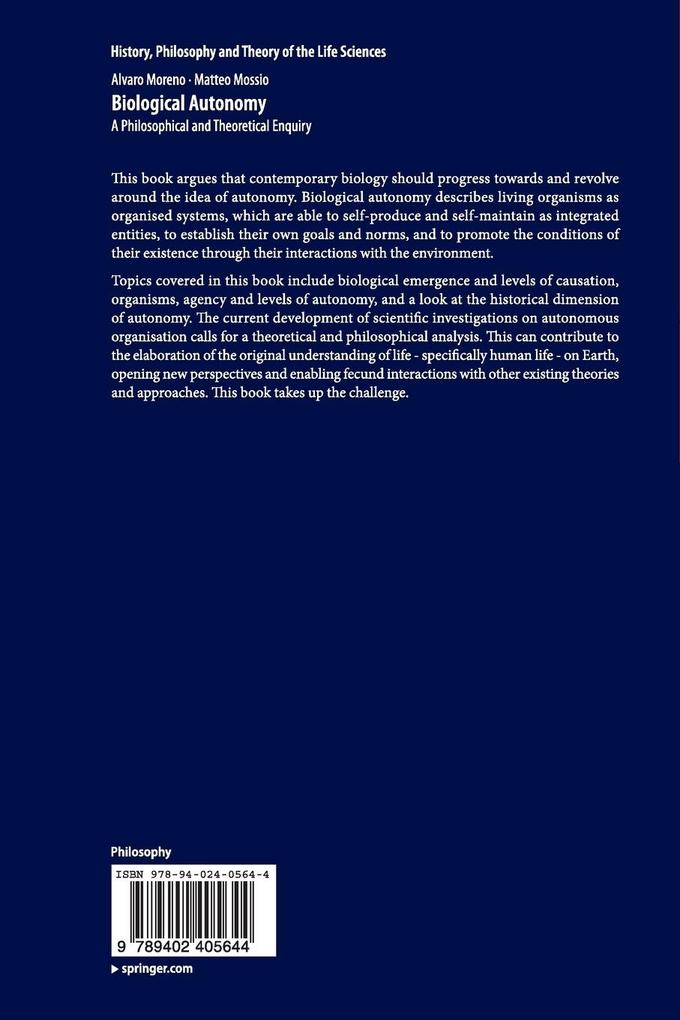Since Darwin, Biology has been framed on the idea of evolution by natural selection, which has profoundly influenced the scientific and philosophical comprehension of biological phenomena and of our place in Nature. This book argues that contemporary biology should progress towards and revolve around an even more fundamental idea, that of autonomy. Biological autonomy describes living organisms as organised systems, which are able to self-produce and self-maintain as integrated entities, to establish their own goals and norms, and to promote the conditions of their existence through their interactions with the environment.
Topics covered in this book include organisation and biological emergence, organisms, agency, levels of autonomy, cognition, and a look at the historical dimension of autonomy. The current development of scientific investigations on autonomous organisation calls for a theoretical and philosophical analysis. This can contribute to the elaboration of an original understanding of life - including human life - on Earth, opening new perspectives and enabling fecund interactions with other existing theories and approaches. This book takes up the challenge.
Inhaltsverzeichnis
Introduction: Life as autonomy. - I. Constraints and organisational closure. - II. Biological emergence and inter-levels causation. - III. Teleology, normativity, and functionality. - IV. Agency. - V. Evolution: the historical dimension of autonomy. - VI. Organisms and levels of autonomy. - VII. Cognition. - VIII. Opening conclusions. - Index.




































